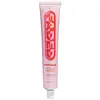What's inside
What's inside
 Key Ingredients
Key Ingredients

 Benefits
Benefits

 Concerns
Concerns

 Ingredients Side-by-side
Ingredients Side-by-side

Water
Skin ConditioningCaprylic/Capric Triglyceride
MaskingGlycerin
HumectantNiacinamide
SmoothingButyrospermum Parkii Butter
Skin ConditioningTranexamic Acid
AstringentGlyceryl Stearate
EmollientArbutin
AntioxidantSimmondsia Chinensis Seed Oil
EmollientBehenyl Alcohol
EmollientGlyceryl Behenate
EmollientKojic Acid
AntioxidantOxidized Glutathione
EmollientPhenoxyethanol
PreservativeCeteareth-20
CleansingLecithin
EmollientSclerotium Gum
Emulsion StabilisingZinc Ricinoleate
Arginine Hcl
Skin ConditioningAzelaic Acid
BufferingSqualane
EmollientCeteareth-12
EmulsifyingCetearyl Alcohol
EmollientCetyl Palmitate
EmollientTetrahydroxypropyl Ethylenediamine
Curcuma Longa Callus Extract
Skin ProtectingSodium Lauroyl Sarcosinate
CleansingTrisodium Ethylenediamine Disuccinate
Phytic Acid
Allantoin
Skin ConditioningDimethylmethoxy Chromanyl Palmitate
Skin ConditioningEthylhexylglycerin
Skin ConditioningCentella Asiatica Leaf Extract
Skin ConditioningMelatonin
AntioxidantGlycyrrhiza Glabra Root Extract
BleachingWater, Caprylic/Capric Triglyceride, Glycerin, Niacinamide, Butyrospermum Parkii Butter, Tranexamic Acid, Glyceryl Stearate, Arbutin, Simmondsia Chinensis Seed Oil, Behenyl Alcohol, Glyceryl Behenate, Kojic Acid, Oxidized Glutathione, Phenoxyethanol, Ceteareth-20, Lecithin, Sclerotium Gum, Zinc Ricinoleate, Arginine Hcl, Azelaic Acid, Squalane, Ceteareth-12, Cetearyl Alcohol, Cetyl Palmitate, Tetrahydroxypropyl Ethylenediamine, Curcuma Longa Callus Extract, Sodium Lauroyl Sarcosinate, Trisodium Ethylenediamine Disuccinate, Phytic Acid, Allantoin, Dimethylmethoxy Chromanyl Palmitate, Ethylhexylglycerin, Centella Asiatica Leaf Extract, Melatonin, Glycyrrhiza Glabra Root Extract
Water
Skin ConditioningCaprylic/Capric Triglyceride
MaskingDimethyl Isosorbide
SolventIsodecyl Neopentanoate
EmollientIsononyl Isononanoate
EmollientPropanediol
SolventArachidyl Alcohol
EmollientUndecylenoyl Phenylalanine
Skin ConditioningSodium Lactate
BufferingBehenyl Alcohol
EmollientGlyceryl Stearate
EmollientLactic Acid
BufferingCetearyl Alcohol
EmollientOctadecenedioic Acid
EmulsifyingPolyacrylate-13
PEG-100 Stearate
Triethanolamine
BufferingArachidyl Glucoside
EmulsifyingPhenylethyl Resorcinol
AntioxidantPhenoxyethanol
PreservativePolyisobutene
Caprylyl Glycol
EmollientDimethylmethoxy Chromanyl Palmitate
Skin ConditioningXanthan Gum
EmulsifyingChlorphenesin
AntimicrobialDisodium EDTA
Polysorbate 20
EmulsifyingSodium Hyaluronate
HumectantDextran
Nonapeptide-1
Skin ConditioningWater, Caprylic/Capric Triglyceride, Dimethyl Isosorbide, Isodecyl Neopentanoate, Isononyl Isononanoate, Propanediol, Arachidyl Alcohol, Undecylenoyl Phenylalanine, Sodium Lactate, Behenyl Alcohol, Glyceryl Stearate, Lactic Acid, Cetearyl Alcohol, Octadecenedioic Acid, Polyacrylate-13, PEG-100 Stearate, Triethanolamine, Arachidyl Glucoside, Phenylethyl Resorcinol, Phenoxyethanol, Polyisobutene, Caprylyl Glycol, Dimethylmethoxy Chromanyl Palmitate, Xanthan Gum, Chlorphenesin, Disodium EDTA, Polysorbate 20, Sodium Hyaluronate, Dextran, Nonapeptide-1
 Reviews
Reviews

Ingredients Explained
These ingredients are found in both products.
Ingredients higher up in an ingredient list are typically present in a larger amount.
Behenyl Alcohol is a type of fatty alcohol (these are different from the drying, solvent alcohols).
Fatty Alcohols have hydrating properties and are most often used as an emollient or to thicken a product. They are usually derived from natural fats and oils; behenyl alcohol is derived from the fats of vegetable oils.
Emollients help keep your skin soft and hydrated by creating a film that traps moisture in.
In 2000, Behenyl Alcohol was approved by the US as medicine to reduce the duration of cold sores.
Learn more about Behenyl AlcoholThis ingredient is an emollient, solvent, and texture enhancer. It is considered a skin-softener by helping the skin prevent moisture loss.
It helps thicken a product's formula and makes it easier to spread by dissolving clumping compounds.
Caprylic Triglyceride is made by combining glycerin with coconut oil, forming a clear liquid.
While there is an assumption Caprylic Triglyceride can clog pores due to it being derived from coconut oil, there is no research supporting this.
Learn more about Caprylic/Capric TriglycerideCetearyl alcohol is a mixture of two fatty alcohols: cetyl alcohol and stearyl alcohol. It is mainly used as an emulsifier. Emulsifiers help prevent the separation of oils and products. Due to its composition, it can also be used to thicken a product or help create foam.
Cetearyl alcohol is an emollient. Emollients help soothe and hydrate the skin by trapping moisture.
Studies show Cetearyl alcohol is non-toxic and non-irritating. The FDA allows products labeled "alcohol-free" to have fatty alcohols.
This ingredient is usually derived from plant oils such as palm, vegetable, or coconut oils. There is debate on whether this ingredient will cause acne.
Due to the fatty acid base, this ingredient may not be Malassezia folliculitis safe.
Learn more about Cetearyl AlcoholAccording to a manufacturer, this ingredient is used for skin whitening, freckle removal, and photoprotection.
Glyceryl Stearate is a mix of glycerin and stearic acid.
It is used to stabilize the mixing of water and oil ingredients. By preventing these ingredients from separating, it can help elongate shelf life. It can also help thicken the product's texture.
As an emollient, it helps soften skin and supports barrier-replenishing ingredients.
In cosmetics, Glyceryl Stearate is often made from vegetable oils or synthetically produced.
This ingredient may not be fungal-acne safe
Fun fact: The human body also creates Glyceryl Stearate naturally.
Learn more about Glyceryl StearatePhenoxyethanol is a preservative that has germicide, antimicrobial, and aromatic properties. Studies show that phenoxyethanol can prevent microbial growth. By itself, it has a scent that is similar to that of a rose.
It's often used in formulations along with Caprylyl Glycol to preserve the shelf life of products.
Water. It's the most common cosmetic ingredient of all. You'll usually see it at the top of ingredient lists, meaning that it makes up the largest part of the product.
So why is it so popular? Water most often acts as a solvent - this means that it helps dissolve other ingredients into the formulation.
You'll also recognize water as that liquid we all need to stay alive. If you see this, drink a glass of water. Stay hydrated!
Learn more about Water